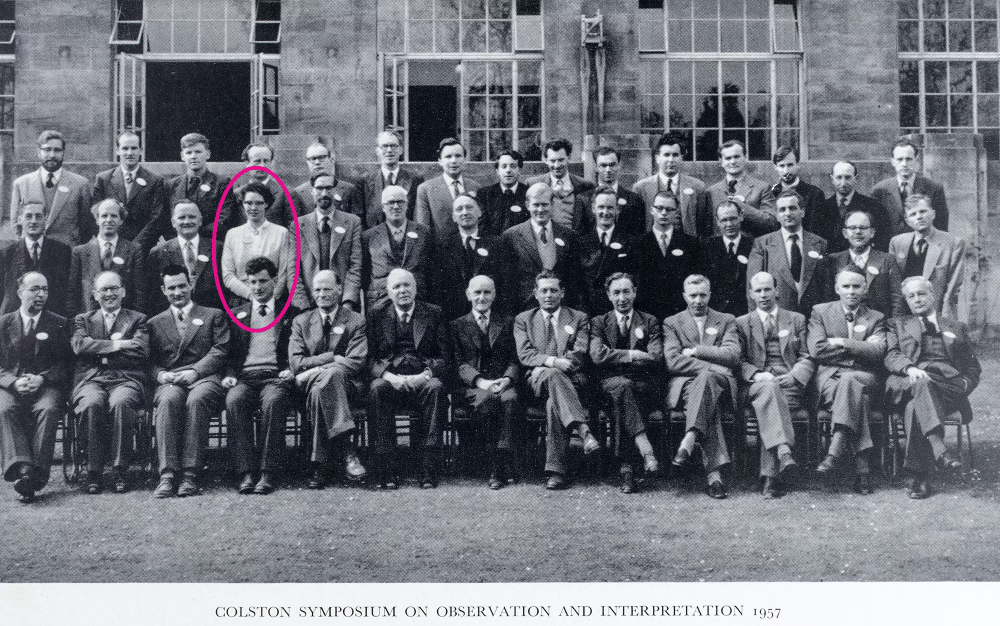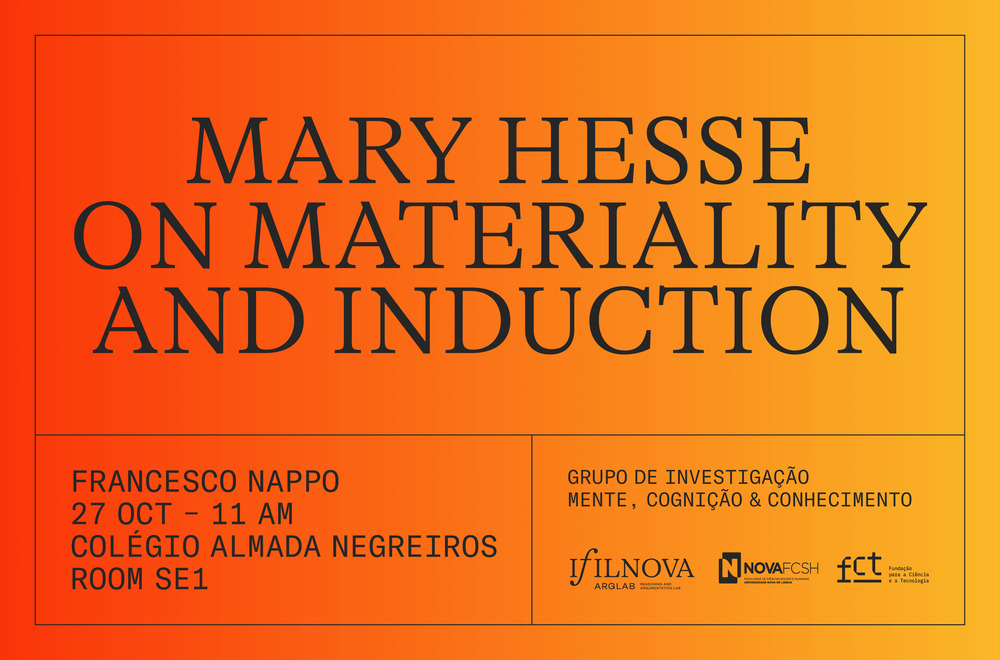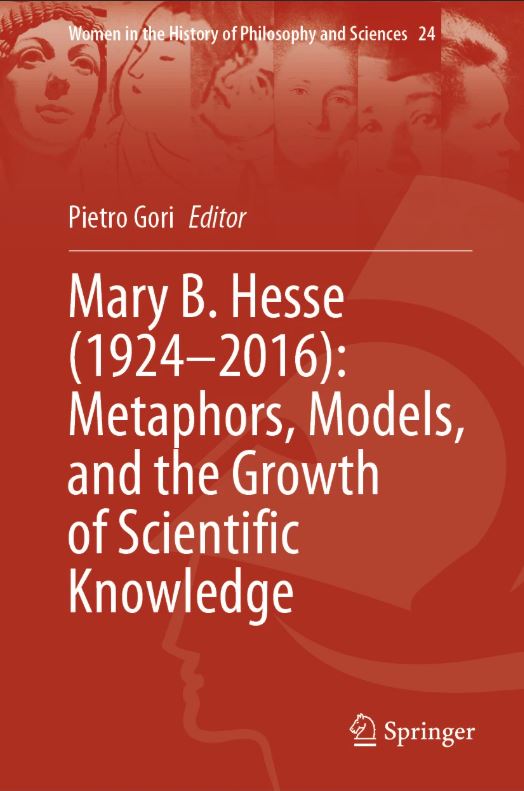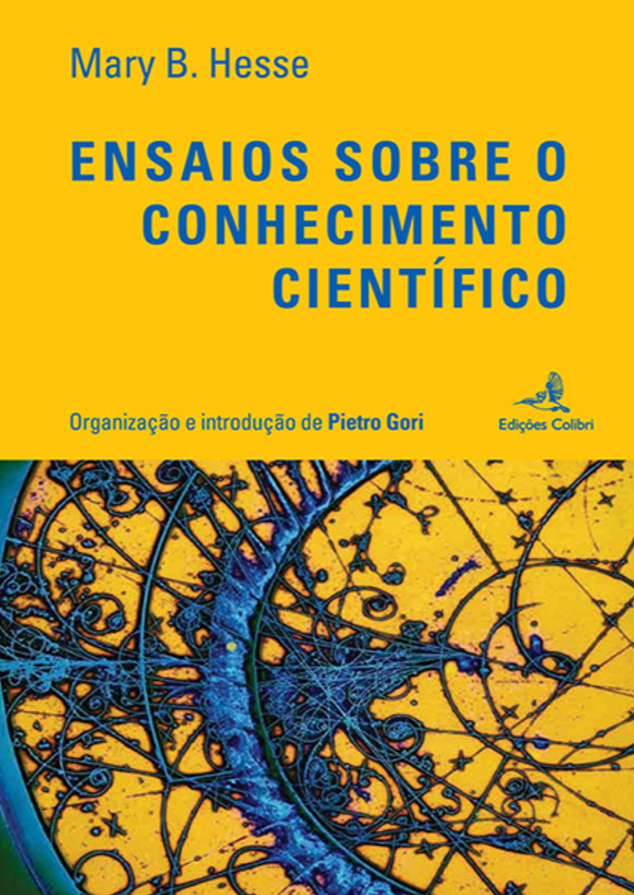Categories
Tag: philosophy of science
Categories
New publication
The volume “Ensaios sobre o conhecimento científico“, edited by Pietro Gori, has recently been published, collecting selected texts by Mary Hesse translated into Portuguese for the first time.
The essays published in this volume outline the theoretical path developed by Mary Hesse and show the challenges that her view of scientific knowledge pose for contemporary philosophy.
As much as the work of well-known authors such as Paul Feyerabend and Thomas Kuhn, Hesse’s philosophical reflections stimulated the debate on the value and limits of scientific knowledge and contributed to the development of a broader approach to classic questions in the philosophy of science, an approach that includes methodologies and theoretical content from other disciplines: primarily the history of science, but also sociology and hermeneutics.
Further information on the volume can be found here.
On 11 November 2024 at the Center for Philosophy of Science of the University of Lisbon (CFCUL), María de Paz (Univ. Seville), Silvia di Marco (CFCUL), and Pietro Gori (IFILNOVA) will meet to discuss about Mary Hesse’s view of scientific knowledge.
During the meeting will be launched the book “Ensaios sobre o conhecimento científico” (Colibri, Lisboa; ed. P. Gori), that collects key papers on scientific knowledge by Mary Hesse, translated for the first time into portuguese.
The meeting will take place at the Faculty of Science of the University of Lisbon, room 6.2.44, starting 4 PM.
Categories
Diectory entry on Hesse
Helene Scott-Fordsmand has recently contributed an insightful directory entry on Mary Hesse (1924-2016) for the Directory of Women Philosophers.
Follow this link to read Helene’s account of Hesse’s legacy and her impact on modern philosophy.
Categories
Symposium on Mary Hesse
The fifth biennal congress of the International Society for the History of Philosophy of Science that will start next week in Vienna will host a symposium devoted to “Mary B. Hesse’s Philosophy of Science and Her Legacy”.
The symposium has been organized by María de Paz, bringing together four different perspectives on Hesse, to discuss her work on the occasion of the centenary of her birth. The papers will focus on major themes explored by Hesse, as well as on her philosophical background:
– “Wittgenstein and Hesse on Metaphors and Family
Resemblance” by David Hommen;
– “Mary Hesse to the Rescue in Contemporary Realism Debates” by Laura Bujalance Fernández-Quero;
– “Hesse’s Modified Realism and Science as a Process” by María de Paz and María J. Gutiérrez-Márquez;
– “Expanding the Epistemological Framework of Natural Science: Mary Hesse (and Thomas Kuhn) on Hermeneutics, Translation, and Interpretation” by Pietro Gori.
Take a look at the complete program of the HOPOS 2024 conference here.
As an outcome of our research project a Symposium on “Pragmatism and/on Science and Scientism” has been edited by Pietro Gori and Rachel Cristy for the European Journal of Pragmatism and American Philosophy.
The aim of the Symposium is to explore the relationship of pragmatist philosophy with both science and scientism throughout the history of the tradition, from Peirce’s analysis of the representation and implementation of scientific concepts to Brandom’s contemporary pragmatic reappropriation of Hegelian epistemology for the understanding of scientific theories.
You can reach here the published issue.
Categories
Nice article on Hesse
The 2022 article “The lady vanishes” by Ann-Sophie Barwich, published on the online magazine AEON, is devoted to Mary Hesse. It is an interesting peice where Barwich argues that “the overwhelming absence of women in intellectual history is constructed. And we won’t prevent the fading of women from future history simply with an occasional reminder about the existence of a few remarkable individuals throughout the ages. What really causes our collective forgetting is the stepwise removal of their names from ongoing conversation.” For Barwich, “the story of Mary Hesse shows how quickly even well-known women from our recent past can vanish from the collective memory of their peers.”
Hesse was different. Her ideas present a refreshing departure from her contemporaries’ single-minded infatuation with the logic and justification of scientific knowledge and the idea that the rationality of philosophers ruled the foundation of science.

Categories
Hesse on Materiality and Induction
The next session of our research seminar will be in charge of Francesco Nappo, from the Politecnico of Milan.
On October 24th, starting at 11:00, he will deliver a paper titled “Mary Hesse on Materiality and Induction“. Aim of this paper is to discuss one of the most widespread misinterpretations of Hesse’s works, which concerns the distinction between “formal” and “material” analogies in science, provide an interpretation of Hesse’s material condition that does justice to its epistemological significance, and bring out connections to some of Hesse’s other works on the topic of induction and scientific reasoning.
The session will take place at Colégio Almada Negreiros of the NOVA University of Lisbon , Room SE1.

Categories
Pietro Gori @EPISTRAN preliminary meeting
In the occasion of the EPISTRAN preliminary meeting that will take place on July 2023, 13th and 14th (NOVA/FCSH + online), Pietro Gori will deliver an exploratory paper titled “Expanding the epistemological framework of natural science. Mary Hesse (and Thomas Kuhn) on Hermeneutics, Translation, and Interpretation“.
The paper will be focused on Mary Hesse’s hermeneutic approach towards scientific knowledge, in relationship/comparison with Thomas Kuhn’s reflections on translation and interpretation in science.
The EPISTRAN project is financed by the Portuguese Foundation for Science and Technology, through CETAPS’ strategic programme, references UIDB/04097/2020 and UIDP/04097/2020. It also enjoys the collaboration of the following research centres: CHAM, CICS, CRIA, CLUNL, IFILNOVA, CEAUL, CECC
Categories
EPISTRAN project
Within the activities on Mary Hesse’s view of scientific knowledge, part of the research team joined the project on “Epistemic Translation: Towards an Ecology of Knowledges” (EPISTRAN) launched in Spring 2023 at the FCSH/NOVA University of Lisbon.
Responding to a challenge raised by Douglas Robinson in the conclusion of his book Translationality (2017: 200-202), the EPISTRAN project uses concepts, methods and theories from Translation Studies to investigate the semiotic processes (verbal and nonverbal) involved in the transfer of information between different ‘epistemic systems’. The main focus is on the relationship between technical ‘scientific’ knowledge (i.e. the kind of knowledge which purports to be objective, rational and universal) and the various embedded, embodied and subjective forms of knowledge that have served as its Others in different times and places. Starting from the assumption that these are different modes of discourse and thus susceptible to translational operations, the project seeks to investigate the mechanisms at work in three distinct areas:
-
Science and Humanities – how specialist science is reformulated into popular and educational science, or reworked into imaginative literature, audiovisual content or even works of art
-
Knowledges of the World – how forms of epistemic translation are/can be used to transmit scientific and medical knowledge to indigenous communities in the Global South, and, conversely, how indigenous knowledges from these regions are/can be translated into formats that are meaningful to the sophisticated North
-
The Invention of Science – the translational processes involved in the Early Modern transition to a scientific mode of inquiry
The research, which makes use of methods drawn from Descriptive Translation Studies, supplemented with considerations from recent work in the fields of multimodality, neuroscience and information technology, is conducted by a transdisciplinary team with a shared interest in translation.
EPISTRAN is financed by the Portuguese Foundation for Science and Technology, through CETAPS’ strategic programme, references UIDB/04097/2020 and UIDP/04097/2020. It also enjoys the collaboration of the following research centres: CHAM, CICS, CRIA, CLUNL, IFILNOVA, CEAUL, CECC


